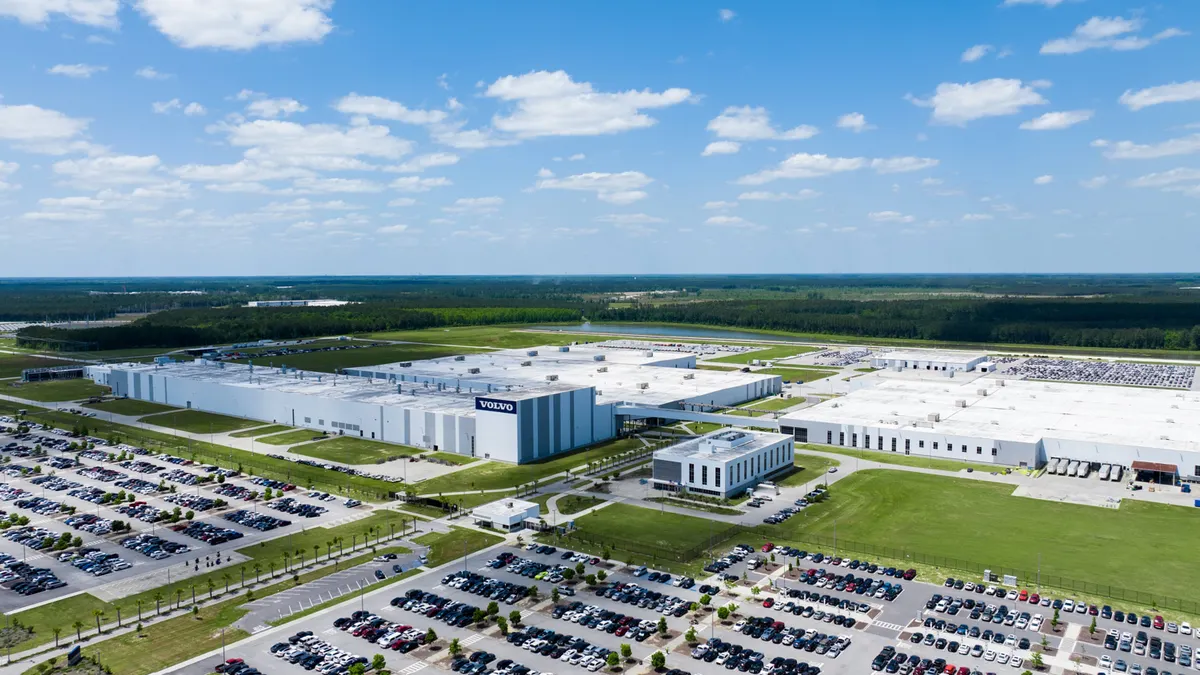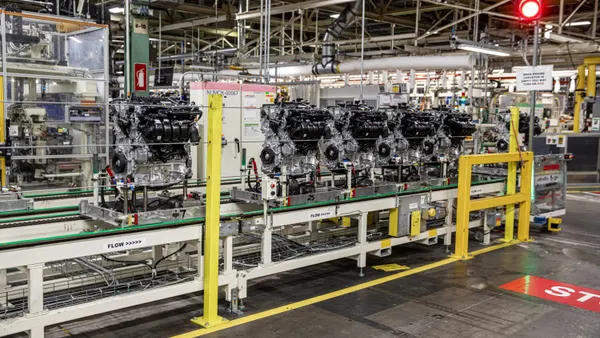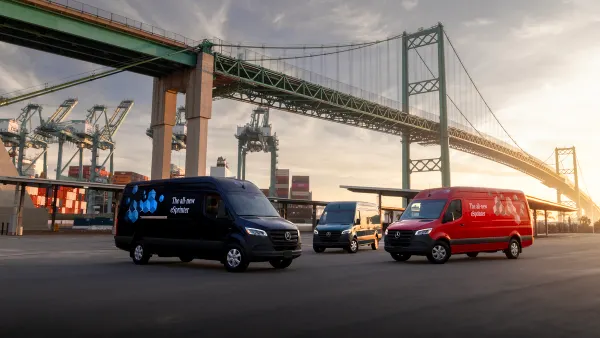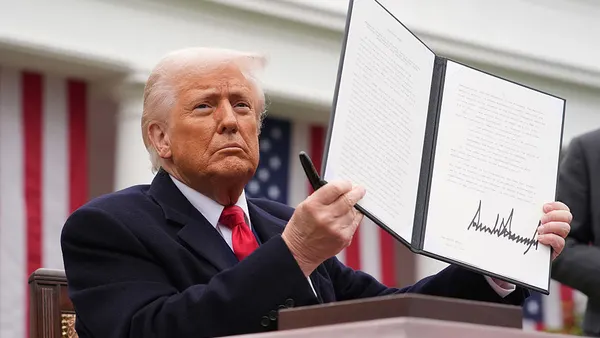Dive Brief:
- Volvo Cars is restructuring its global operations to give its three key business markets greater decision-making power to more quickly respond to today’s rapidly changing tariff-fueled business environment, CEO and President Håkan Samuelsson said on a call with analysts on July 17.
- The move is part of the automaker’s strategy to rapidly boost profitability, as well as circumvent tariffs in the U.S., China and Europe, Samuelsson said.
- “Regionalization, we need to come back to growth in China and U.S. and that we believe will happen if we empower the regions more and give them more autonomy to react to local conditions,” he said on the call.
Dive Insight:
Cost-cutting and profitability have been Samuelsson’s priority since returning to the automaker in April.
Samuelsson said Volvo’s plan announced in May to slash expenses by 18 billion Swedish kronor ($1.9 billion), which included eliminating 3,000 jobs or 15% of its global workforce, is on track to return the company to profitability by 2026. About 1,100 people have already departed the automaker, per its Q2 earnings press release.
CFO Fredrik Hansson said on the call that Volvo’s restructuring costs will represent a one-off charge impacting earnings before interest and taxes by 1.4 billion SEK ($147.1 million). However, the automaker, which also took a $1.2 billion impairment charge, expected financial setbacks in Q2 but Hasson is confident in a quick turnaround.
“We will start to see the profit effects of this coming into force throughout the year, but especially in the fourth quarter,” Hasson said on the call, adding that “the whole program is geared towards 2026 profitability.”
A key to returning to profitability is local decision-making and regional production, according to Samuelsson. The company implemented a new governance guideline in China, giving executives there more freedom to adapt to local conditions and grow faster.
The move also allows Volvo more production synergies with its parent company, Geely, where Volvo can introduce its line of cars based on Geely platforms, Samuelsson said.
“The XC70 is one example, but we can also lower our costs by having a cooperation on more parts and components level, so that is happening in China,” he said.
In Europe, Volvo in April began production of its fully electric EX30 mid-sized SUV. The vehicle was previously built in China for export to Europe, but production was moved to its plant in Belgium “to avoid the tariffs,” Sameuelsson said. Volvo will also work with Polestar, also owned by Geely, to build the Polestar 7 at the company’s new plant in Slovakia, to sell those vehicles in Europe.
For the U.S., Volvo announced it will build its XC60 mid-sized SUV at its Ridgeland, South Carolina factory starting in late 2026. Samuelsson said its U.S. operations will also benefit from a new leadership structure and experience “more empowerment to really come back to growth in Americas as well.” He said earlier this year that Volvo’s Ridgeland plant was underutilized and sought to quickly boost domestic production to offset import duties.
“That is a car which will bring high volumes to the factory, together with the increase of the EX90, will give that factory a much better utilization in the second half of '26,” Samuelsson said.














